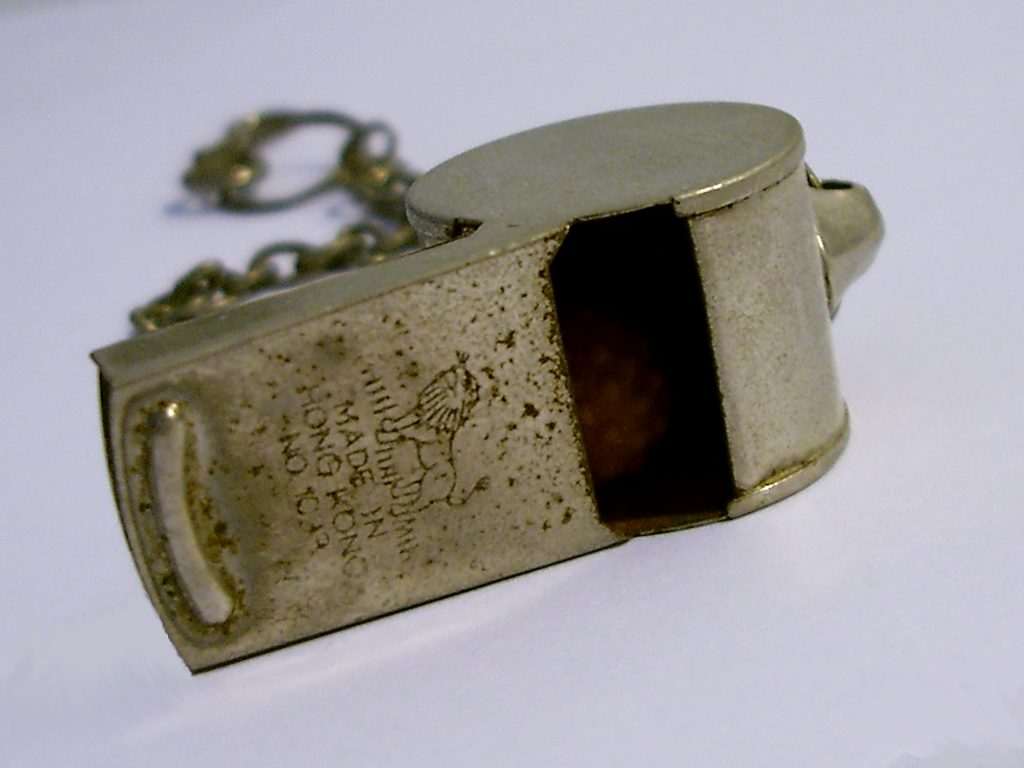 It is no secret that lawsuits are expensive creatures. It is perhaps baffling then that a party would retain an attorney, file a lawsuit, and maintain that lawsuit for over thirteen years without sufficiently actively pursuing that lawsuit. Yet, that is exactly what happened in a recent case out of Livingston Parish. And as the case explains, such inactivity within a case subjects the lawsuit to dismissal for abandonment. Money and time wasted for all parties involved.
It is no secret that lawsuits are expensive creatures. It is perhaps baffling then that a party would retain an attorney, file a lawsuit, and maintain that lawsuit for over thirteen years without sufficiently actively pursuing that lawsuit. Yet, that is exactly what happened in a recent case out of Livingston Parish. And as the case explains, such inactivity within a case subjects the lawsuit to dismissal for abandonment. Money and time wasted for all parties involved.
In 2001, R.L. Hall and Associates, Inc. (“R.L. Hall”) filed a lawsuit against Brunt Construction, Inc. (“Brunt”) and Fidelity Deposit Company of Maryland (“Fidelity”) over a lien arising out of a construction contract. The next action on record does not occur until 2005 when R.L. Hall filed a motion to compel discovery. Then, in 2007, R.L. Hall filed the first motion to set a scheduling conference. After the 2007 telephone conference between the parties, nothing else appeared in the record until the plaintiff filed a second motion to set a conference in December of 2010. After the court established discovery deadlines following the 2010 conference, nothing appeared in the record again until the plaintiff filed a third motion to set a conference on June 4, 2014. During 2011 however, counsel for R.L. Hall did send letters to lawyers for the defendants in an attempt to schedule depositions. The informal correspondence, however, was not filed and does not appear in the court record. The defendants then filed a motion to dismiss R.L. Hall’s claim because there were no steps taken to further the action in over three years. The Judicial District Court for the Parish of Livingston dismissed the matter as abandoned.
R.L. Hall appealed the dismissal to the Louisiana First Circuit Court of Appeal. Pursuant to La. C.C.P. art. 561 an action “is abandoned when the parties fail to take any step in its prosecution or defense in the trial court for a period of three years[.]” Upon the passage of three years without any steps taken in the case, the case is automatically dismissed without the need for a court order. To maintain a case, a party needs only to take some step within three years of the last action toward the prosecution or defense of the action and the step must be in the proceeding and on the record. See Clark v. State Farm Mutual Automobile Insurance Corporation, 785 So.2d 779 (La. 2001). Attempting to schedule a deposition through informal correspondence without a filed formal notice of deposition does not constitute a “step” which would interrupt the abandonment clock.
 Louisiana Personal Injury Lawyer Blog
Louisiana Personal Injury Lawyer Blog


 One of the least know parts of a personal injury suit occurs after trial or settlement. It’s called subrogation. Subrogation is the reimbursement of third parties for payments made relating to an accident. Many times, a subrogation claim is made by the injured’s own vehicle insurance provider or by the injured’s own medical insurance provider. Embedded in many insurance contracts is a “subrogation waiver.” As the name suggests, a subrogation waiver in an insurance contract provides that one party agrees to waive its subrogation rights against another party in the event of a loss. Typically, this waiver takes the form of insurers agreeing to forego its ability to seek payment from third parties who may be responsible for losses the insurer had to pay to its insured. In a workers’ compensation context, such waivers would prevent an insurer from seeking compensation from a party who may have been responsible for an employee becoming injured. Absent such waiver, an insurer would have the ability to seek compensation for what it paid in benefits from the party responsible for the work injury.
One of the least know parts of a personal injury suit occurs after trial or settlement. It’s called subrogation. Subrogation is the reimbursement of third parties for payments made relating to an accident. Many times, a subrogation claim is made by the injured’s own vehicle insurance provider or by the injured’s own medical insurance provider. Embedded in many insurance contracts is a “subrogation waiver.” As the name suggests, a subrogation waiver in an insurance contract provides that one party agrees to waive its subrogation rights against another party in the event of a loss. Typically, this waiver takes the form of insurers agreeing to forego its ability to seek payment from third parties who may be responsible for losses the insurer had to pay to its insured. In a workers’ compensation context, such waivers would prevent an insurer from seeking compensation from a party who may have been responsible for an employee becoming injured. Absent such waiver, an insurer would have the ability to seek compensation for what it paid in benefits from the party responsible for the work injury. Inherent in most insurance contracts is an insurer’s duty to defend its insured against certain lawsuits. Part of this duty requires the insurer to pay for all legal costs and other fees related to a particular lawsuit. In a commercial general liability (“CGL”) context, business owners often rely on an insurer’s duty to defend in order to avoid paying significant legal fees for defending actions which would ultimately be covered by a CGL policy. As one might expect, whether this duty to defend exists depends on whether the loss alleged in a lawsuit is within the scope of the policy’s coverage. As a recent Louisiana Appellate Court illustrates, it is very important that insureds understand the language of their CGL policies so as to know when a duty to defend exists.
Inherent in most insurance contracts is an insurer’s duty to defend its insured against certain lawsuits. Part of this duty requires the insurer to pay for all legal costs and other fees related to a particular lawsuit. In a commercial general liability (“CGL”) context, business owners often rely on an insurer’s duty to defend in order to avoid paying significant legal fees for defending actions which would ultimately be covered by a CGL policy. As one might expect, whether this duty to defend exists depends on whether the loss alleged in a lawsuit is within the scope of the policy’s coverage. As a recent Louisiana Appellate Court illustrates, it is very important that insureds understand the language of their CGL policies so as to know when a duty to defend exists. Whistleblowers play a controversial role in the United States. Without Mark Felt, also known as Deep Throat, the world would have never known about the corruptions in the Nixon Administration and without Edward Snowden, the world would have never known the extent of the NSA’s surveillance on both U.S. citizens and foreign individuals. Congress recognized the importance of whistleblowers when it passed the False Claims Act. The False Claims Act allows individuals to bring lawsuits (called a qui tam action) on behalf of the United States when an individual or entity defrauds the United States Government. See
Whistleblowers play a controversial role in the United States. Without Mark Felt, also known as Deep Throat, the world would have never known about the corruptions in the Nixon Administration and without Edward Snowden, the world would have never known the extent of the NSA’s surveillance on both U.S. citizens and foreign individuals. Congress recognized the importance of whistleblowers when it passed the False Claims Act. The False Claims Act allows individuals to bring lawsuits (called a qui tam action) on behalf of the United States when an individual or entity defrauds the United States Government. See  Contractual relationships can advance or dissolve as time passes, often turning sour when promises are not kept. One or both parties may attempt to break the relationship but the underlying contract is not so easily terminated. As a result, the parties may find themselves in a court battle over seemingly small details. In this recent Louisiana case before the United States Fifth Circuit Court of Appeal, the presumably costly break-up came down to one little word.
Contractual relationships can advance or dissolve as time passes, often turning sour when promises are not kept. One or both parties may attempt to break the relationship but the underlying contract is not so easily terminated. As a result, the parties may find themselves in a court battle over seemingly small details. In this recent Louisiana case before the United States Fifth Circuit Court of Appeal, the presumably costly break-up came down to one little word.  What if you are injured, hire a lawyer, and that lawyer fails to sufficiently work on your case? Outrage ensues and you may choose to fire that lawyer and hire a second. But is that first lawyer entitled to payment if you happen to win and receive an award in your case? In a recent Louisiana case, the Fifth Circuit Court of Appeals decided that the answer can be in the affirmative.
What if you are injured, hire a lawyer, and that lawyer fails to sufficiently work on your case? Outrage ensues and you may choose to fire that lawyer and hire a second. But is that first lawyer entitled to payment if you happen to win and receive an award in your case? In a recent Louisiana case, the Fifth Circuit Court of Appeals decided that the answer can be in the affirmative.  It is not uncommon for a victorious party in a lawsuit to seek attorneys’ fees upon their win. There is no guarantee however the judge will agree an award of attorneys’’ fees are warranted. In some cases filed in state court, the defendant can remove the case be heard in federal court. If the federal court lacks jurisdiction, however, the case will be sent back to state court. Whether the attorneys’ fees associated with the removal process can be recouped by the winning party is the subject of a recent lawsuit out of New Orleans.
It is not uncommon for a victorious party in a lawsuit to seek attorneys’ fees upon their win. There is no guarantee however the judge will agree an award of attorneys’’ fees are warranted. In some cases filed in state court, the defendant can remove the case be heard in federal court. If the federal court lacks jurisdiction, however, the case will be sent back to state court. Whether the attorneys’ fees associated with the removal process can be recouped by the winning party is the subject of a recent lawsuit out of New Orleans.  Most of us probably owe money to someone. Whether it be for our home, a vehicle, a credit card or even just to a friend. A
Most of us probably owe money to someone. Whether it be for our home, a vehicle, a credit card or even just to a friend. A A person may seek help from the federal court system when that person feels that they have been cheated or wronged.
A person may seek help from the federal court system when that person feels that they have been cheated or wronged. Contract disputes can often be complicated when multiple parties and corporations are involved. Courts are forced to sort out multiple claims and counterclaims and figure out who is accountable for what. Even after a decision is made, there can be multiple appeals and judgments that a higher court is asked to review. In complicated cases, it’s common for mistakes to happen, as a case that landed in the Fifth Circuit will demonstrate, and the appeal process is available for parties to have their case double checked.
Contract disputes can often be complicated when multiple parties and corporations are involved. Courts are forced to sort out multiple claims and counterclaims and figure out who is accountable for what. Even after a decision is made, there can be multiple appeals and judgments that a higher court is asked to review. In complicated cases, it’s common for mistakes to happen, as a case that landed in the Fifth Circuit will demonstrate, and the appeal process is available for parties to have their case double checked.